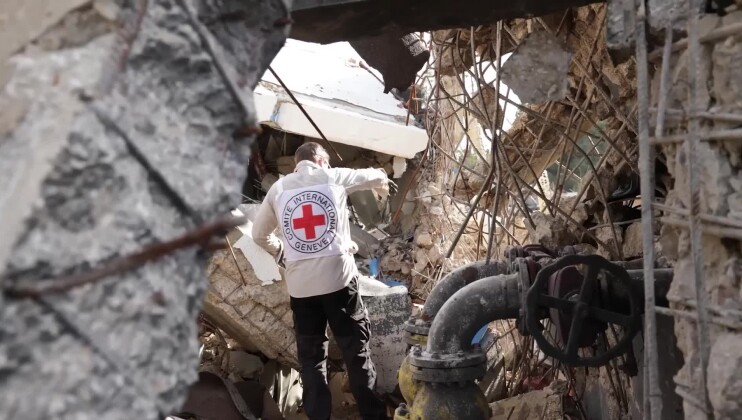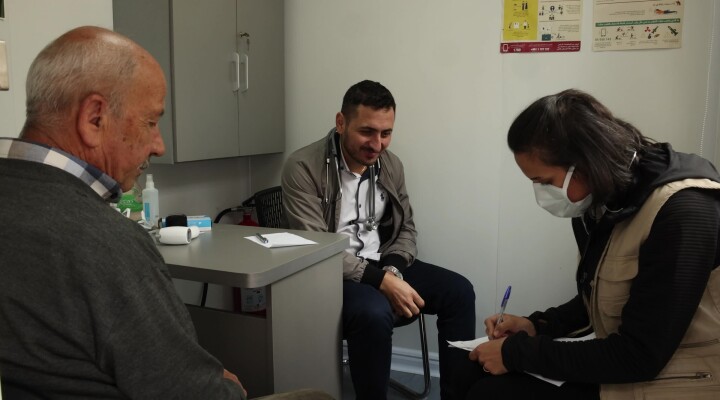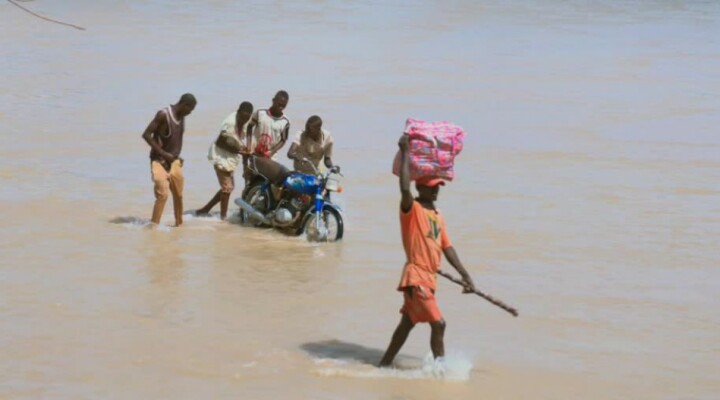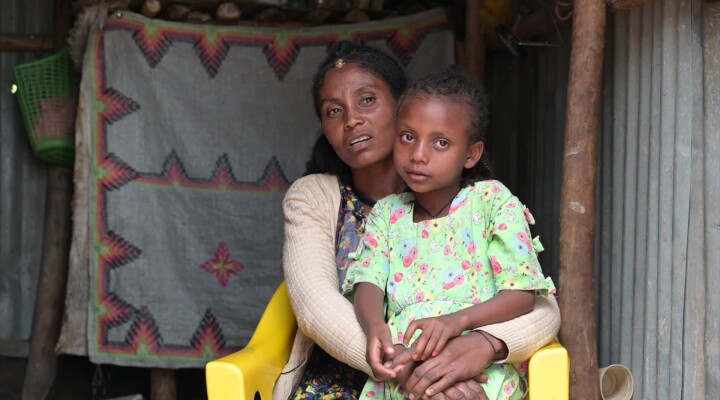Afghanistan: Red Cross-supported health facilities treat more than 4,000 people wounded by weapons since Aug. 1
Geneva/Kabul (ICRC) – Hundreds of thousands of civilians are at risk as fighting intensifies in and around Kunduz, Lashkar Gah, Kandahar, and other Afghan cities. The International Committee of the Red Cross (ICRC) is calling on both parties to the conflict for immediate restraint. The ICRC calls for civilians and vital infrastructure such as hospitals to be protected from attack and any collateral damage caused by fighting in populated areas.
Since 1 August, 4,042 patients wounded by weapons have been treated at 15 ICRC-supported health facilities, an indication of the intensity of the recent violence.
“People cannot reach health services, or health services are prevented to function normally because of damages or because movement is impossible, because staff cannot work, cannot access the clinics, or because hospitals are in the middle of the frontlines,” said Eloi Fillion, ICRC’s head of delegation in Afghanistan.
Street-to-street clashes in Kunduz, Lashkar Gah and other cities over the last few days have injured hundreds of civilians even as medical services are heavily strained due to damage to health facilities and a lack of staff. Electricity is out across several contested cities and water supply systems are barely operational in some places. Many families are trying to leave but cannot find transport to escape or simply do not have the financial means.
The ICRC and its partner the Afghan Red Crescent Society (ARCS) are doing as much as they can to evacuate the wounded and transport the mortal remains of those killed as a result of the conflict. In July alone, the ICRC helped nearly 13,000 patients suffering from weapon-related injuries across the country, and this number appears likely to rise this month as fighting increases in highly populated areas.
Note to editors:
In Afghanistan the ICRC has a team of 1,800 international and national staff who provide diverse humanitarian assistance across the country. Our aim is not only to bring assistance, but also to keep civilians and people deprived of their freedom safe from harm. To know more about ICRC activities during the first six months of 2021, please read our operational update.
For more information, please contact
Roya Musawi (Pashto & Dari), rmusawi@icrc.org , +93 70 348 6085
Najum Iqbal (English), nulsaqibiqbal@icrc.org , +41 79 217 32 17
Jason Straziuso (English & French), jstraziuso@icrc.org , +41 79 949 3512
INTERVIEW TRANSCRIPT
Location: Kabul, Afghanistan
Length: 1.56
Format: mp4
Camera: Roya Musawi
Editor: Chris Sang
Filming Date: 09 August 2021
Copyright: ICRC access all
On Screen Credit: ICRC or logo
Name and Title: Eloi Fillion, ICRC’s head of delegation in Afghanistan
00:00-00:08: The conflict has been increasing over the last six months in Afghanistan, and now in reaching days, it is reaching the cities.
00:09-00:17: It is reaching densely populated areas, having dire consequences on tens of thousands of members of the civilian population.
00:18-00:37: A lot of concerns today are arising about access to health services. People cannot reach health services, or health services are prevented to function normally because of damages or because movement is impossible, because staff cannot work, cannot access the clinics, or because hospitals are in the middle of the frontlines.
00:38-00:47: This is not giving the possibility for organisations like ours to provide the necessary services in terms of health services to people.
00:48-00:59: To give you an idea, since the beginning of August, we have supported the treatment of over 4,000 war-wounded, only in the last few days.
01:00-01:13: Today what is really a matter of concern is the way fighting is going on in densely populated areas, in cities. What is really important for those fighting for those to restrain themselves as much as possible to prevent damages to hospitals,
01:14-01:38: to limit the negative impact on the movement of ambulances, on the movement of medical staff for them to be able to work, to limit as well damages caused to infrastructure on electricity, infrastructure on water, to allow the civilian population in these areas to live as normal as possible.
01:39-01:56: What is important as well is to remind all parties fighting in the cities today is to allow humanitarian organisations to work, to bring dire humanitarian assistance to the population and to be able to care out services such as health services and others



